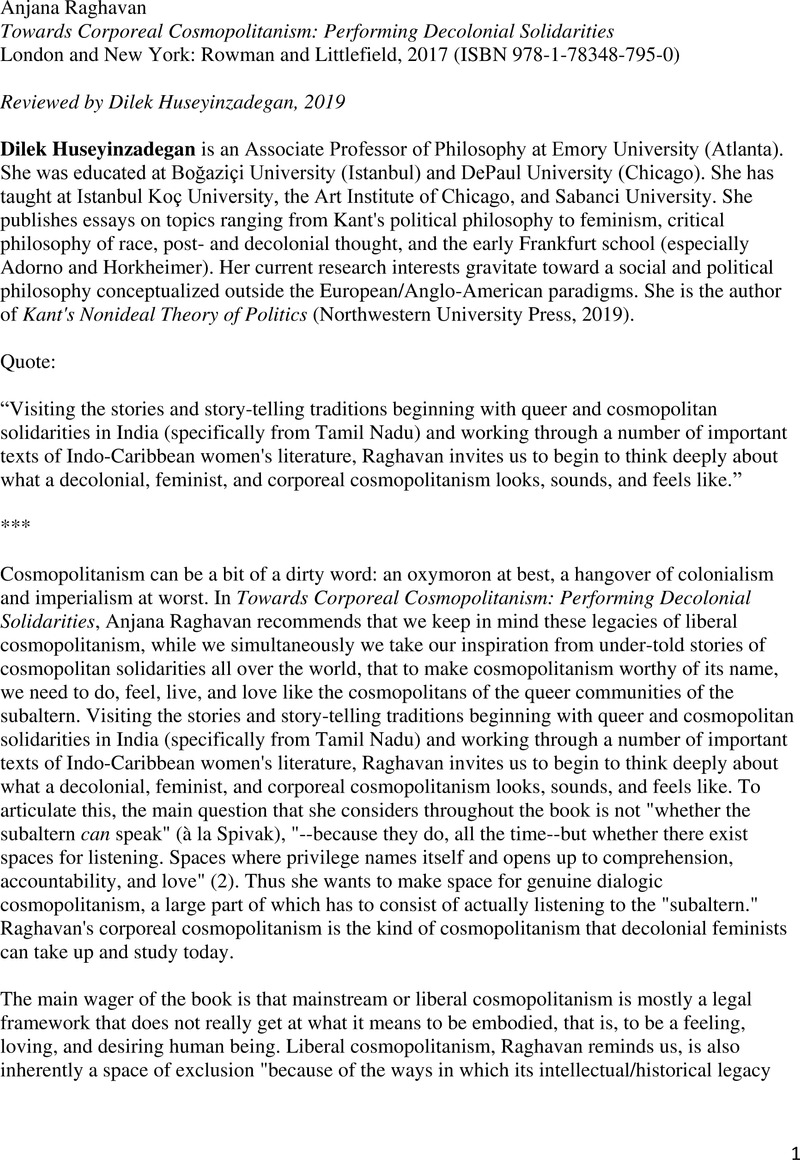No CrossRef data available.
Article contents
Anjana Raghavan, Towards Corporeal Cosmopolitanism: Performing Decolonial Solidarities. London and New York: Rowman and Littlefield, 2017 (ISBN 978-1-78348-795-0)
Published online by Cambridge University Press: 01 October 2021
Abstract

- Type
- Book Review
- Information
- Copyright
- Copyright © Hypatia, Inc., 2020
References
1 The Murid are a Senegalese Black African Islamic community known for its diasporic networks of trade. Although they are nomadic, they are “tied to their spiritual heartland, to which they make an annual pilgrimage.” Instead of following “an assimilation or absorption model, they add on their identity to the global diasporic network in an informed, deliberate way” (82).
2 It is important to point out that although Raghavan uses these terms interchangeably, she reminds us that they do not always mean the same thing in all places and times (93).
3 At some point, Raghavan tells us that the corporeal cosmopolitanism she envisions “is not unlike a jahaj, traveling in an ocean of stories” (146). This is partly why I cannot do justice to the particular stories she is telling as she hopes to make “a beginning in terms of illustrating the depth and complexity of corporeal cosmopolitanism as an embodied inhabited community of practice” (155). You need to feel your way through these stories in order to appreciate the richness, bravery, and fragility of the lived experiences that they narrativize.
4 Raghavan's chapter title is inspired by Gabriel García Marquez's 1988 novel, Love in the Time of Cholera.




